Key Takeaways:
- Leverage enhances your purchasing power, allowing you to control more properties with less personal capital.
- Strategic use of leverage can significantly increase your cash flow and return on investment.
- Properly managing leverage and understanding market conditions can lead to substantial long-term wealth through property appreciation.

Leverage: The Game-Changer in Real Estate Wealth Building
Leverage in real estate refers to using borrowed funds to purchase properties, allowing investors to control more assets with less of their own money.
This strategy amplifies potential returns by increasing purchasing power and enhancing cash flow.
Leveraging is crucial for building wealth because it enables investors to acquire more properties, benefit from property appreciation, and optimize cash flow.
By effectively using leverage, real estate investors can grow their portfolios, increase their net worth, and achieve long-term financial success.
Understanding how to calculate and use leverage wisely is key to maximizing investment potential.

Understanding Leverage in Real Estate
Definition of Leverage
Leverage is the use of borrowed money to buy more properties than one could purchase with their own funds alone.
In real estate, leverage allows investors to use a mortgage or other financing to control a larger asset base, increasing potential returns on an investment.
Explanation of How Leverage Works in Real Estate Investing
Leverage works by using equity or borrowed money to buy investment properties.
For example, an investor might use a mortgage to purchase a rental property.
The rental income generated can cover the mortgage payment and other expenses, potentially leaving the investor with a profit.
Leverage is a technique that many real estate investors use to buy more properties, thereby increasing their real estate portfolio and maximizing returns.
By leveraging real estate to build wealth, investors can take advantage of property appreciation, increased rental income, and higher returns on investment (ROI).
Leverage Ratio: Definition and Importance
The leverage ratio in real estate is a way to calculate the proportion of borrowed funds to the total value of an investment property.
A higher leverage ratio means a higher proportion of borrowed money.
For instance, if an investor uses $20,000 of their own money and borrows $80,000 to buy a $100,000 property, the leverage ratio is 4:1.
This ratio is crucial because it determines the level of risk and potential return on the investment.
Higher leverage can amplify returns but also increase the risk if the property value decreases.
Understanding and managing the leverage ratio is essential for successful real estate finance.
Benefits and Disadvantages
- Advantages: Leverage can increase purchasing power, enhance returns, and allow investors to buy more properties.
- Disadvantages: High leverage increases risk, especially if real estate values decline or rental income falls short.
Key Concepts:
- Equity: The value of an investor’s ownership in a property.
- Mortgage: A loan used to buy a property.
- Rental Income: Money earned from leasing out a property.
- Return on Investment (ROI): A measure of the profitability of an investment.
- Leverage Ratio: The ratio of borrowed funds to the value of the property.
- Property Management: The operation and oversight of real estate.
Leverage is a powerful tool in real estate investing, enabling investors to amplify their buying power and returns.
RELATED CONTENT
By understanding how to calculate and manage leverage ratios, investors can strategically use leverage to build substantial real estate portfolios and increase their wealth.

Types of Leverage in Real Estate
Financial Leverage
Financial leverage involves using borrowed funds, such as a mortgage or a home equity line of credit, to finance your real estate investments.
This allows you to buy properties with less of your own money, increasing your potential return on investment.
For example, instead of paying all cash, you can use a mortgage to purchase a rental property.
By doing so, you can leverage your real estate to buy more properties, expand your real estate investment portfolio, and benefit from property appreciation.
Operating Leverage
Operating leverage in real estate refers to the impact of fixed costs, like property management and maintenance expenses, on your overall profitability.
High operating leverage means that a significant portion of your expenses are fixed, so any increase in rental income goes directly to your bottom line.
This can be particularly advantageous in a good real estate market where rental prices are rising.
By effectively managing your fixed costs and increasing your rental income, you can maximize your returns from your real estate projects.
Example of Leveraging Real Estate for Investment
Imagine you want to invest in commercial real estate.
You find a property with a purchase price of $500,000. Instead of using all cash, you decide to finance the property with a $100,000 down payment and a $400,000 loan from a lender.
This use of leverage allows you to control a valuable asset with a relatively small amount of your own money.
As the value of the property appreciates and your rental income increases, you benefit from the enhanced returns due to the leverage used.
Leveraging your real estate investment can give you an advantage over rising real estate prices and grow your wealth over time.
Key Concepts:
- Financial Leverage: Using borrowed funds to invest in real estate.
- Operating Leverage: The effect of fixed costs on profitability.
- Leverage to Buy: Acquiring properties using a mix of your own funds and loans.
- Property Appreciation: Increase in the value of a property over time.
- Home Equity Line of Credit: A loan based on the equity in your home.
Understanding and utilizing different types of leverage can significantly impact your success in real estate investing.
When using financial and operating leverage strategically, you can enhance your real estate investment portfolio, increase the value of your properties, and build substantial wealth over time.
Try your best to use leverage to your advantage and learn what leverage can do for your investment strategy.

Benefits of Using Leverage in Real Estate Investing
Increasing Purchasing Power
Using leverage in real estate investing allows you to increase your purchasing power.
Instead of buying one property with all cash, you can use a mortgage to spread your capital across multiple properties.
For example, if you have $200,000, you could purchase one property outright.
However, with leverage, you can finance multiple rental properties using that same amount as down payments.
This strategy enables you to control more assets and diversify your investment portfolio.
Enhancing Cash Flow and ROI
Leverage can also significantly enhance your cash flow and return on investment (ROI).
By using a mortgage to finance the purchase price of the property, you can preserve your cash for other investments or expenses.
Rental income from your properties can cover the mortgage payments and other operating costs, leaving you with positive cash flow.
This increased cash flow can be reinvested to further grow your portfolio.
Additionally, the ROI is higher because you are generating returns on the total value of the property, not just your initial investment.
Building Wealth Through Property Appreciation
One of the most powerful benefits of leveraging real estate is building wealth through property appreciation.
As the value of your properties increases over time, the equity you hold in those properties grows.
For example, if you purchase a rental property using leverage and the property’s value appreciates, you benefit from the increased value without having invested the full purchase price.
This appreciation builds your net worth and allows you to leverage further investments, creating a cycle of wealth building.
Key Concepts:
- Purchasing Power: Ability to control more assets with less personal capital.
- Cash Flow: Income remaining after all expenses are paid.
- Return on Investment (ROI): Measure of the profitability of an investment.
- Property Appreciation: Increase in the property’s value over time.

Risks of Leverage in Real Estate
Potential for Increased Debt
When you use leverage in real estate investing, you increase your potential for debt.
Borrowing money to finance your properties means you are obligated to make regular mortgage payments.
If your rental income doesn’t cover these payments, you may find yourself in financial trouble.
This risk is especially pronounced if you over-leverage, taking on more debt than your cash flow can support.
It’s crucial to carefully calculate your leverage ratio and ensure you can manage the debt comfortably.
Market Fluctuations Affecting Property Value
Leverage can also expose you to market fluctuations that affect property values.
If the real estate market declines, the value of your leveraged properties may drop below the amount you owe on them.
This situation, known as being “underwater,” can lead to significant financial strain.
For instance, if you purchased a property for $500,000 with a $400,000 loan and the property’s value falls to $350,000, you owe more than the property is worth.
It’s important to consider market conditions and have a contingency plan in place.
Tips for Managing Risks Effectively
Managing the risks of leverage in real estate involves several strategies.
First, ensure you have a solid cash reserve to cover mortgage payments during periods of vacancy or market downturns.
Diversifying your investment portfolio can also mitigate risk; owning different types of properties in various locations can protect you from market-specific declines.
Additionally, carefully calculate your leverage ratio and avoid over-leveraging.
A conservative approach to borrowing, where you don’t maximize your debt capacity, can provide a safety buffer.
Lastly, regularly monitor the real estate market and adjust your strategies as needed to protect your investments.
Key Concepts:
- Increased Debt: The obligation to repay borrowed funds.
- Market Fluctuations: Changes in property values due to market conditions.
- Leverage Ratio: The ratio of borrowed funds to the value of the property.
- Diversification: Spreading investments across different types of properties and locations.

How Much Leverage to Use in Real Estate Deals
Factors to Consider When Determining Leverage Ratio
When determining how much leverage to use in real estate deals, you need to consider several factors.
First, assess your cash flow and ensure you can cover mortgage payments and other expenses.
Next, evaluate the stability of your rental income and the overall condition of the real estate market.
A stable income stream and a strong market can support higher leverage.
Additionally, consider your risk tolerance; higher leverage means greater risk, so it’s essential to align your leverage ratio with your comfort level.
Recommended Leverage Ratios for Real Estate Investors
For most real estate investors, a leverage ratio of 70% to 80% is generally recommended.
This means financing 70% to 80% of the property’s purchase price with borrowed funds and using your own capital for the remaining 20% to 30%.
This ratio balances the benefits of leverage with the need to maintain manageable debt levels.
It provides a cushion against market fluctuations and ensures you have some equity in the property, reducing the risk of being underwater if property values decline.
Examples of Different Leverage Scenarios
Conservative Approach: You decide to use a leverage ratio of 50%. You buy a rental property using 50% of your own funds and finance the remaining 50% with a mortgage. This lower leverage minimizes risk but also limits your purchasing power.
Balanced Approach: You opt for a leverage ratio of 75%. You finance 75% of the property’s purchase price with a loan and use 25% of your own money. This approach provides a good balance between increasing your purchasing power and managing risk.
Aggressive Approach: You choose a leverage ratio of 90%. You finance 90% of the purchase price with borrowed funds and use only 10% of your own capital. While this maximizes your purchasing power and potential returns, it also significantly increases your risk if the market fluctuates.
Key Concepts:
- Leverage Ratio: The percentage of the property’s purchase price financed with borrowed funds vs. your own capital.
- Risk Tolerance: Your ability to withstand potential financial losses.
- Cash Flow: Income remaining after expenses.
- Equity: The portion of the property’s value that you own outright.

Tips for Using Leverage to Build Wealth
Assessing Property Cash Flow and Potential Returns
To effectively use leverage to build wealth, start by thoroughly assessing the cash flow of potential investment properties.
Calculate all expenses, including mortgage payments, property taxes, insurance, maintenance, and property management fees.
Compare these expenses to the rental income you expect to receive.
Positive cash flow is crucial; it ensures that your property generates enough income to cover costs and provide a profit.
Additionally, estimate the potential return on investment (ROI) by considering factors such as property appreciation and tax benefits.
Utilizing Financing Options Effectively
Choosing the right financing options is key to leveraging real estate successfully.
Explore different mortgage products, including fixed-rate and adjustable-rate mortgages, to find the best fit for your investment strategy.
Consider the terms and interest rates offered by various lenders. Home equity lines of credit (HELOCs) can also be useful for financing multiple properties.
Ensure you understand the terms and conditions of your loans and use financing options that align with your long-term investment goals.
Strategic Planning for Leveraging Real Estate Investments
Strategic planning is essential when leveraging real estate investments.
Begin by setting clear financial goals and timelines.
Identify the types of properties that align with your objectives, whether they are residential, commercial, or mixed-use.
Diversify your portfolio to mitigate risks and enhance stability.
Regularly review and adjust your leverage strategy based on market conditions and your financial situation.
Finally, consider working with real estate professionals, such as financial advisors and property managers, to optimize your investment approach and make informed decisions.
Key Concepts:
- Cash Flow: The net income from a property after all expenses are paid.
- Return on Investment (ROI): A measure of the profitability of an investment.
- Financing Options: Various loan products available for purchasing properties.
- Strategic Planning: Setting goals and developing a plan to achieve them.


Using Leverage to Increase Cash Flow and Investment Returns
Practical Strategies for Maximizing Cash Flow
To maximize cash flow using leverage, start by selecting properties with strong rental income potential.
Look for locations with high demand and low vacancy rates.
Negotiate favorable purchase prices and financing terms to keep your costs low.
Improve your properties to justify higher rents and attract quality tenants.
Consider refinancing existing properties at lower interest rates to reduce mortgage payments and increase your monthly cash flow.
Additionally, maintain strict control over operating expenses by managing repairs and utilities efficiently.
Case Studies of Successful Real Estate Investors Using Leverage
Case Study 1: John’s Residential Portfolio
John, a real estate investor, used leverage to purchase multiple residential properties.
By putting down 20% and financing the remaining 80%, he was able to acquire five rental properties instead of just one.
John focused on properties in growing neighborhoods with rising rental demand.
His cash flow increased as rental income covered his mortgage payments and other expenses, providing him with a steady profit each month.
Case Study 2: Sarah’s Commercial Investments
Sarah leveraged her investments in commercial real estate by using a mix of traditional mortgages and a home equity line of credit.
She purchased several small office buildings in a revitalized downtown area.
By leveraging her existing home equity, she minimized her initial cash outlay and maximized her property holdings.
Sarah’s strategic use of leverage resulted in significant cash flow and property appreciation, boosting her overall investment returns.
Long-Term Benefits of Leveraging Real Estate Investments
Leveraging real estate investments can provide substantial long-term benefits.
Over time, as you pay down your mortgage, your equity in the property increases, enhancing your net worth.
Property values typically appreciate, further boosting your investment returns.
Additionally, rental income tends to rise with inflation, increasing your cash flow.
By reinvesting the profits from leveraged properties into new investments, you can accelerate the growth of your real estate portfolio and build substantial wealth.
This strategy allows you to take advantage of compound growth and create a sustainable income stream for the future.
Key Concepts:
- Maximizing Cash Flow: Increasing the net income from rental properties.
- Case Studies: Real-life examples of successful investors using leverage.
- Long-Term Benefits: The advantages of leveraging real estate over time.
- Property Appreciation: Increase in property value over time.

Recap of Key Points on Using Leverage in Real Estate
Using leverage in real estate investing allows you to control more properties with less of your own money, increasing your purchasing power and potential returns.
The leverage ratio can balance the benefits and risks effectively.
Leveraging real estate can enhance your cash flow and ROI, while property appreciation builds long-term wealth.
Assessing property cash flow, utilizing the right financing options, and strategic planning are essential for maximizing the benefits of leverage.
Encouragement to Use Leverage to Build Wealth and Achieve Investment Goals
Leverage is a powerful tool that can significantly boost your real estate investment success.
When you carefully select properties, manage your finances, and employ strategic planning, you can use leverage to your massive advantage.
This approach allows you to expand your real estate portfolio, increase your cash flow, and build lasting wealth.
Embrace the potential of leverage to achieve your investment goals and create a prosperous financial future.
With the right strategies and a clear understanding of leverage, you can confidently navigate the real estate market and make your investment dreams a reality.

Leverage: Your Gateway to Real Estate Wealth and Success
Leverage in real estate is a strategy that, when used wisely, can lead to significant financial growth and wealth building.
By applying the principles and tips discussed here, you can leverage your investments to achieve greater success and reach your financial and freedom goals.
Start leveraging today to unlock the full amazement of your real estate investments and secure your future prosperity.
No related posts.





















